
Nissan Magnite Review: First Drive
Nissan enters the already very tight, and super competitive, sub-4m compact-SUV segment with the all-new Magnite. Too little too late? Or does the Magnite have something special up its sleeve? We find out...
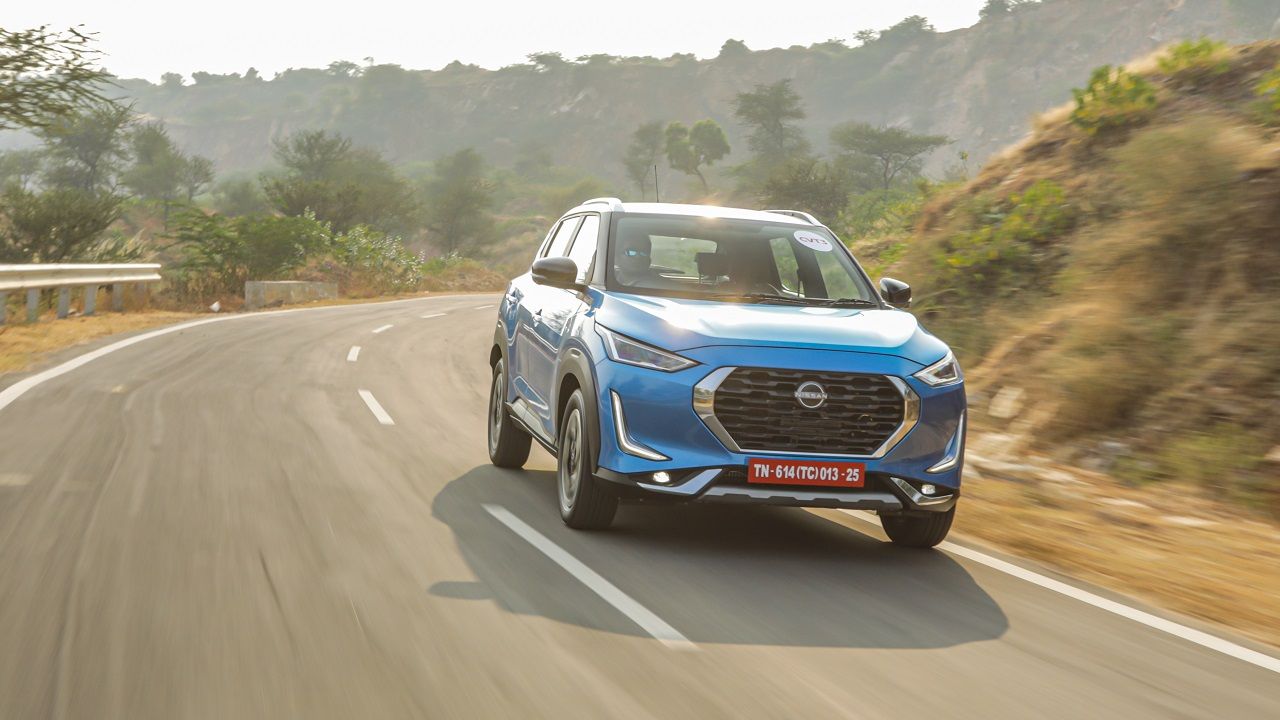
Nissan has managed to squeeze in the Magnite as a make-or-break product in the already very crowded sub-4m compact-SUV segment. Is it too little too late, or can it turn the company’s fortunes around?
There’s hardly any space in the sub-4m compact-SUV segment. I’m not taking a swipe at cramped cabins of compact-SUVs, instead, I’m referring to how crowded and hotly-contested this segment currently is. The Ford EcoSport, which kicked off the segment – okay, technically, the first sub-4m compact-SUV was the Premier Rio, but it was quite irrelevant! – is still soldiering on after all these years, while the Maruti Suzuki Vitara Brezza, Tata Nexon, and Mahindra XUV300 have been doing pretty well for a while. And then you have the segment-leading Korean duo – the Hyundai Venue and Kia Sonet – as well.
All in all, it’s a pretty tight spot (pun intended), with every carmaker worth its salt wanting to claim a piece of this pie. Now, given how all the aforementioned products are thriving in our market, Nissan has decided to enter the segment with the all-new Magnite – the company’s first-ever made-for-India sub-4m compact-SUV. So, the question is – is it too little too late, or can this funky new compact-SUV give its established rivals sleepless nights? Let’s find out.
Sharp Edged
If there’s one thing that Nissan has nailed completely in the Magnite, it’s the styling. As a compact SUV, the Magnite has all the right elements – it’s sharp, butch, and has great proportions. The bi-projector LED headlamps, LED indicators, L-shaped DRLs and LED foglamps, flowery looking 16-inch alloy wheels, and dual-tone paint scheme give it a very modern and aggressive stance. The grille does look as if it has been picked from Datsun’s parts bin, but then, it makes the car look more muscular. In the sub-4m space, I think that the Magnite is probably one of the most masculine and beefy looking SUVs, and consequently, it’s likely to attract buyers like a Magnite . . . I mean, magnet.
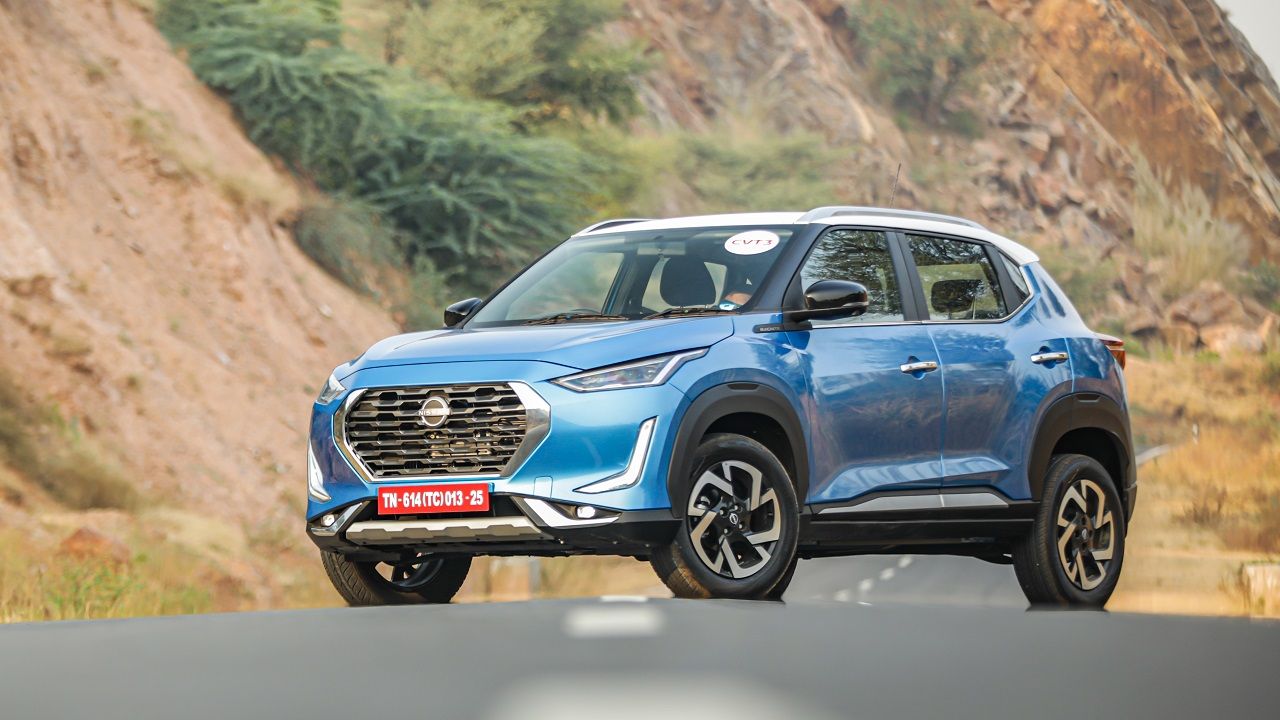
It’s a hard life
While the exterior is quite impressive, the interior doesn’t bowl you over in the same manner. The doors feel feather-light, and the overall plastic quality isn’t the best. There are a lot of hard plastics all around, and the panel gaps are inconsistent. The dashboard’s design is well executed though and doesn’t look cluttered. There are a few bits that remind you of the Renault Triber’s cabin, like the 8.0-inch touchscreen, rotary controllers for aircon, start-stop button, and a few other pieces.
On the upside, the Magnite gets a lot more features – there’s a 360-degree camera, cruise control, and a tyre pressure monitoring system, as well as wireless Apple Car Play and Android Auto and an optional wireless phone charger. The touchscreen is crisp and quite intuitive. Plus, the wireless Android Auto / Car Play makes life quite easier. The 7-inch all-digital instrument cluster is colourful and quite funky, but its loud and bright graphics will take you on a trip down the memory lane, reminding you of those arcade games from the early 1990s.
Safety-wise, the standard kit includes dual airbags and ABS with EBD, while the Turbo versions also get a traction control system. ISOFIX seat mounts are offered in mid- and top-end variants.
When it comes to the seating, the front seats are nicely contoured and are quite supportive. All the controls are within your easy reach, and the interior ergonomics are spot on. The space at the back is even better, with impressive headroom. Plus, with a non-existent transmission hump on the floor, three people can sit comfortably on the rear bench. The Magnite scores high in terms of practicality and storage space too – there are a lot of storage areas in the cabin, and at 336 litres, the boot space is quite decent.
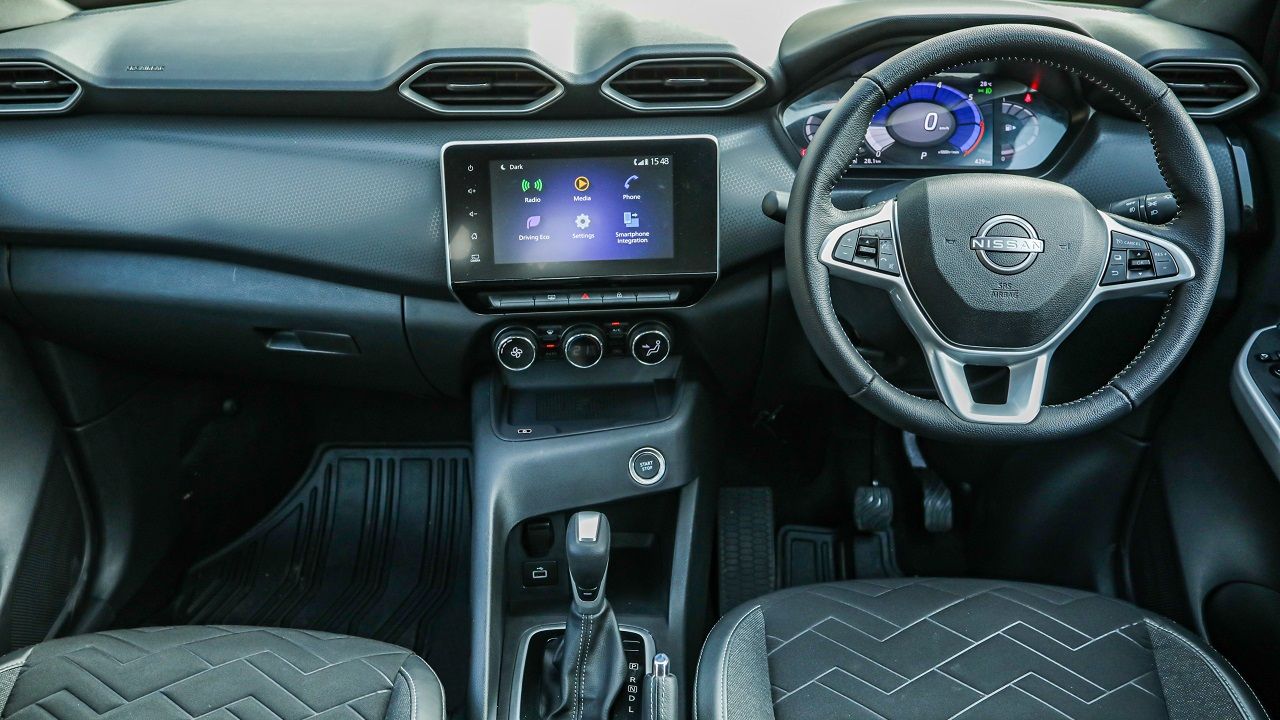
Turbo Magic
The Magnite is offered in two petrol engine options – both are 1.0-litre three-cylinder units. But one is naturally aspirated, which is the same as the Triber’s unit, and the other is turbocharged, which is all new. We drove the Turbo version, which is available with a 5-speed manual and a CVT transmission.
At idle, vibrations are pronounced, especially through the steering wheel and doors, which is quite typical of a car with a three-cylinder engine. Once you get going, the engine starts spinning smoothly and offers linear power delivery. There’s no sudden ‘turbo kick’, especially in the CVT version, and you gain momentum in a progressive manner.
During normal city driving, the engine and CVT combo is buttery smooth and effortless to drive. But if you rush things up, the engine gets noisier, and the transmission struggles to keep up. In ‘L’ or Low mode, the powertrain starts whining quite ferociously. Plus, the cabin insulation isn’t the best in the business – you get all kinds of noises in the cabin all the time.
The engine has a lot of grunt below 4,500rpm, but it runs out of steam past 5,000rpm – it also feels laborious if you keep pushing harder. If you want to have fun, the manual transmission is the better bet – not only does it give you more control but also less NVH to deal with. However, the clutch action is springy, and the gearbox isn’t the slickest. All said, the turbo engine and CVT transmission make for an effortless drive, and it’s quite likeable in the city – I’ll take it over the jerky AMTs of the XUV300 or Nexon any day.
In the ride-and-handling department, the Magnite has typical Nissan / Renault traits. The ride quality is great for the most part, thanks to its taut and absorbent suspension setup. The ride is supple at low speeds, but sharp bumps are felt at high speeds. Around corners, it doesn’t wallow – in fact, it drives more like a hatchback. The wider 195-section width tyres, coupled with 16-inch wheels, give the Magnite a sure-footed feel around corners.
The steering doesn’t offer much in terms of feedback and is very vague. It doesn’t self-centre naturally, especially after taking a sharp U-turn. The brakes are sharp, but the pedal could do with a more progressive feel. Overall, the Magnite is a neutral handler, but it’s not the most balanced or engaging vehicle in its segment.
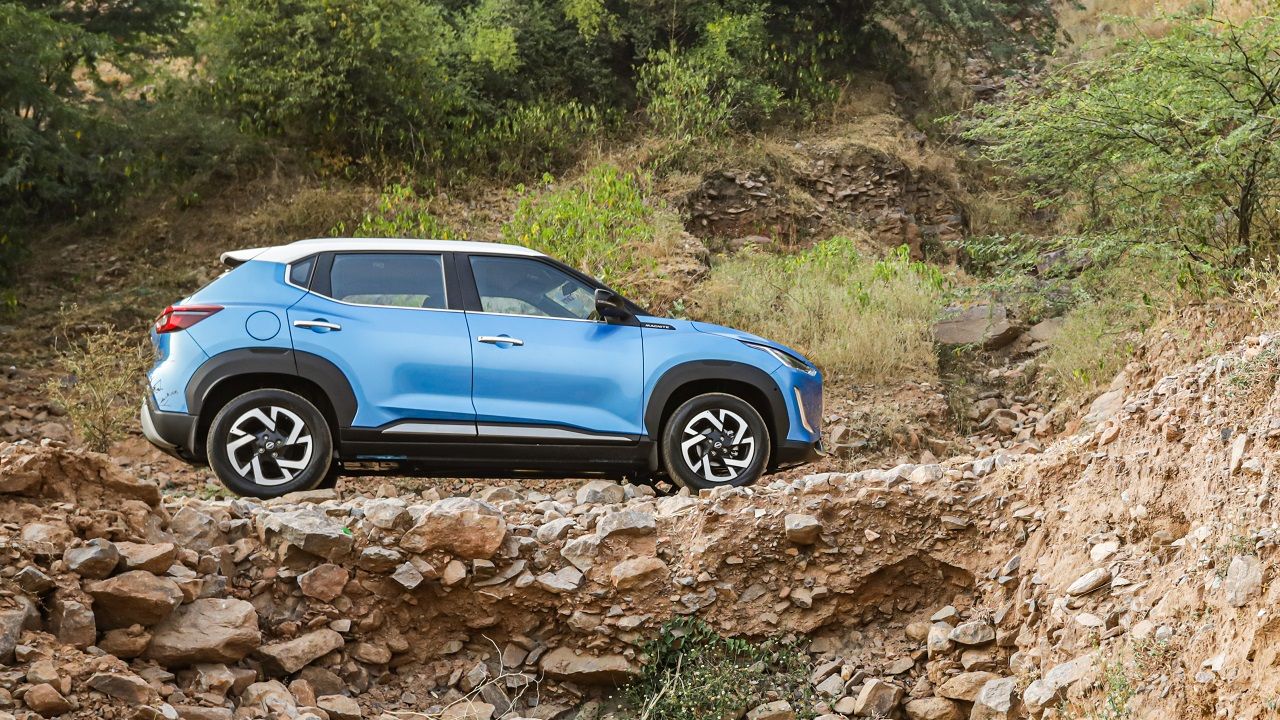
Verdict
As a compact-SUV, the Magnite covers all the bases rather sincerely. It’s a great looker. The engine and transmission options make it an effortless drive. It’s packed to the brim with features, and it’s decent to drive. Sure, the build quality has room for improvement, and the general fit-and-finish is nowhere near the Koreans or even our homegrown products. But then, Nissan has made up for that by pricing it aggressively – the Magnite range kicks off at just ₹4.99 lakh and goes up to ₹9.35 lakh. That’s phenomenal pricing, no matter how you look at it!
The Magnite’s pricing then, it changes everything. You see, not only does it undercut its rivals by a fair margin but you’re also getting a lot of a car for a very little money. That makes the Magnite an irresistible proposition for both compact-SUV buyers and those looking for a premium hatchback.
Also read,
Nissan Magnite to be launched on 2nd December
Nissan Magnite production begins, variant details revealed
Engine: 999cc / 3-Cylinder / Turbocharged
Fuel: Petrol
Transmission: 5-Speed Manual / CVT; Front-Wheel Drive
Power: 99bhp @ 5,000rpm
Torque: 160Nm @ 2,800 – 3,600rpm (Manual); 152Nm @ 2,200 – 4,400rpm (CVT)
Price: ₹5.49 - 9.49 lakh (Ex-showroom)
X-Factor: A stylish, practical, spacious, and fun-to-drive compact-SUV, which is priced aggressively.
| Pros • Effortless & punchy powertrain • Design & value-for-money |
Cons |


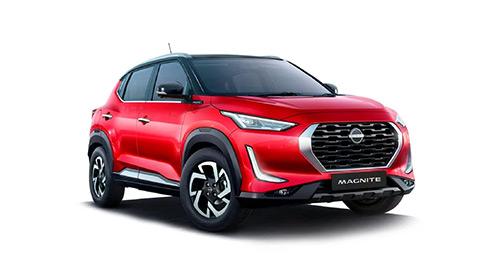

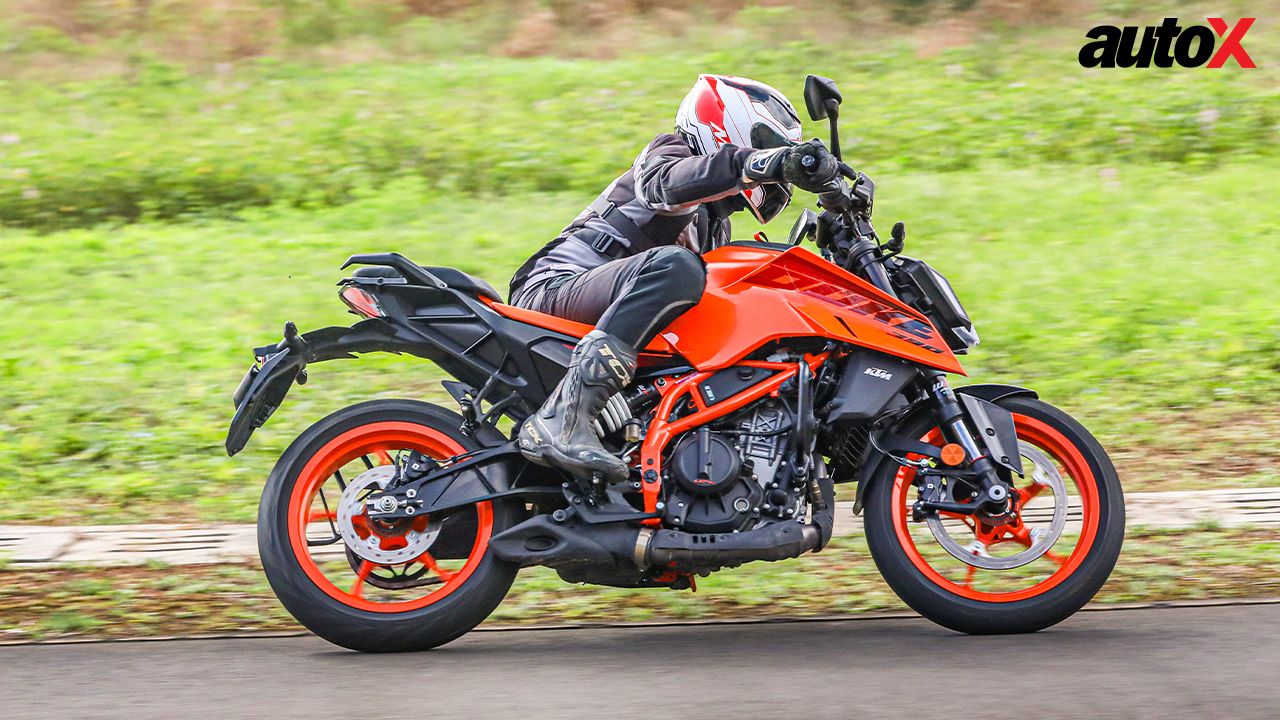
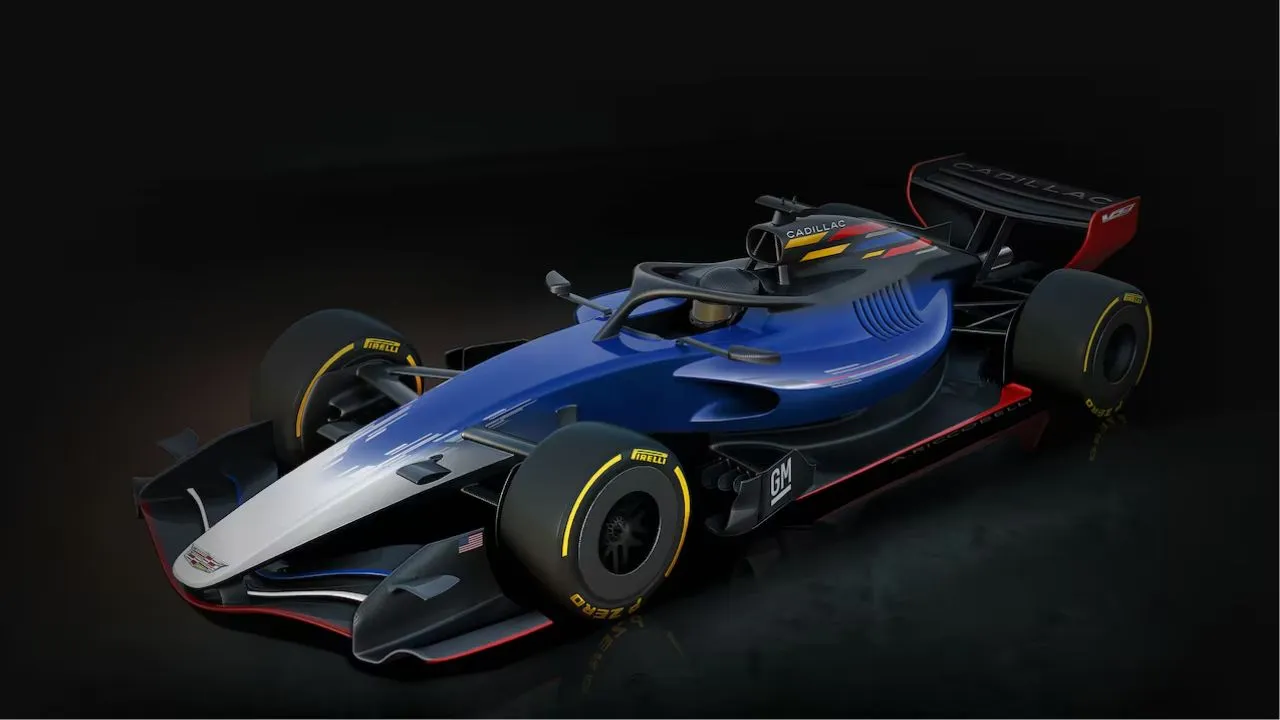
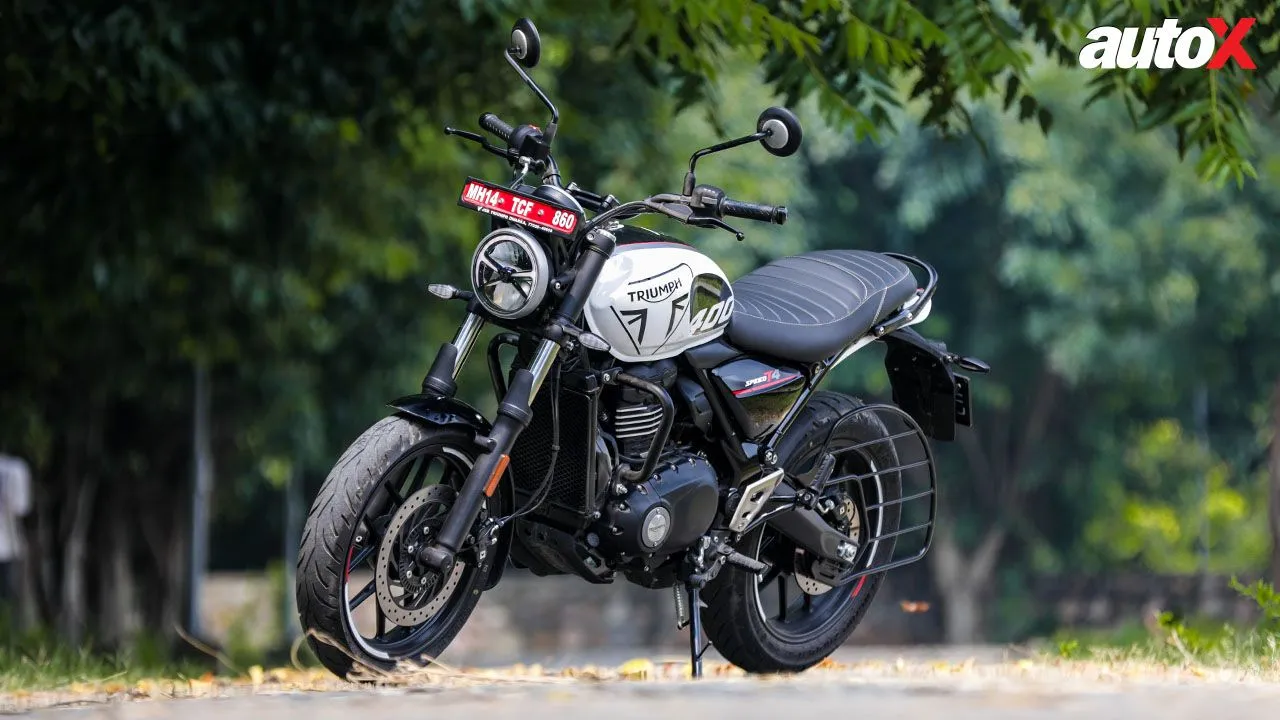
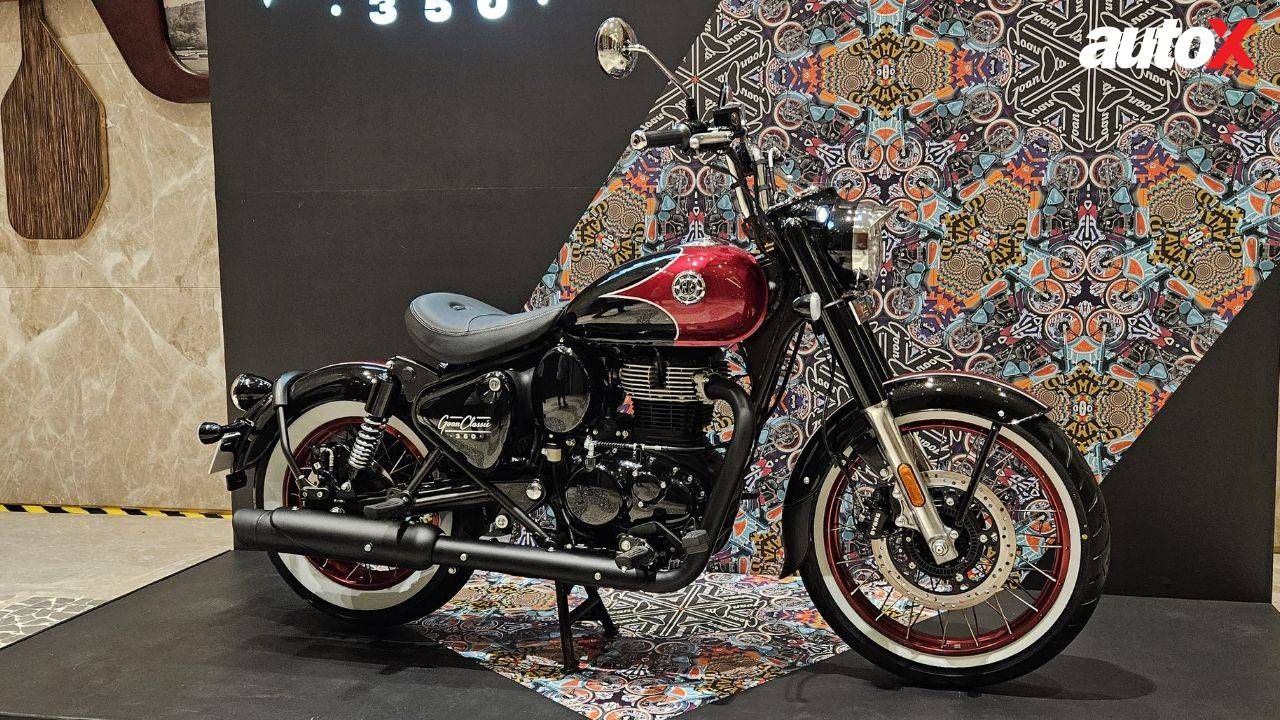
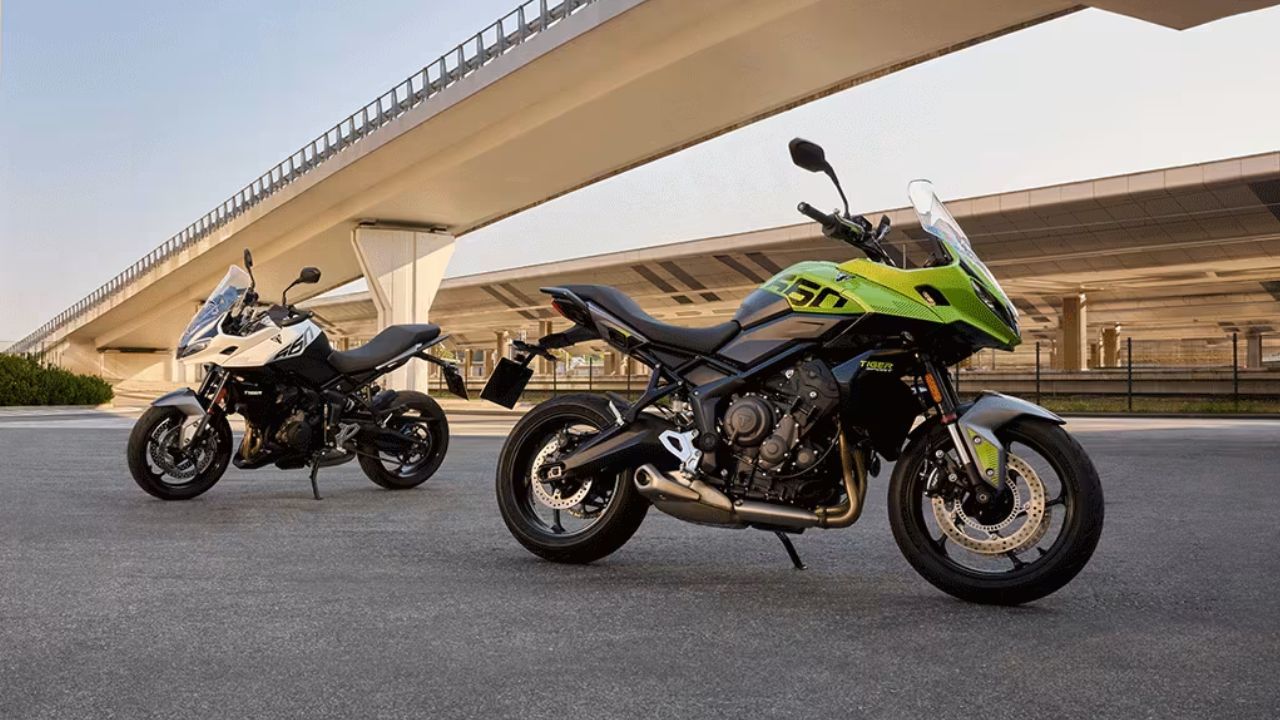
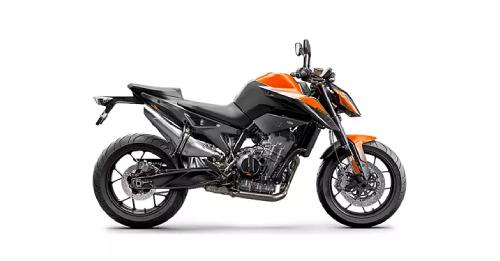
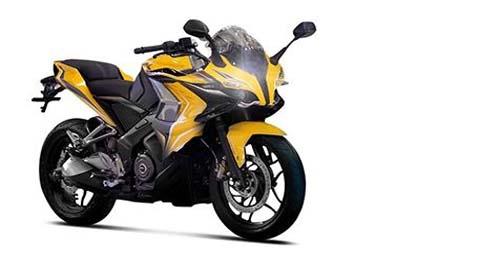
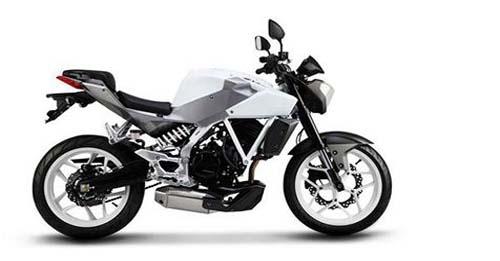
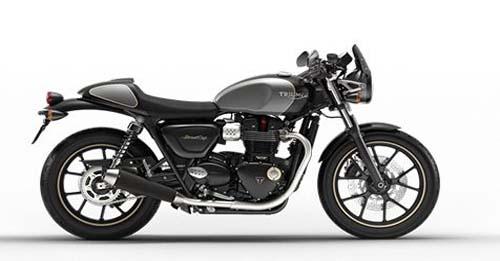










Write your Comment on